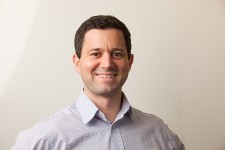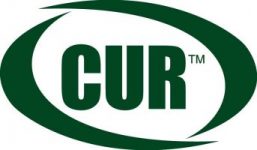About UROP
The Undergraduate Research Opportunity Program (UROP) is a resource for the University of Oregon’s community of scholars. UROP seeks to support and advance faculty-mentored undergraduate research and creative scholarship through three areas of emphasis:
Resources for the UO Community
Funding Mechanisms for Students
Collaboration with Campus Partners
UROP encourages and supports undergraduate research and creative scholarship in all of the academic disciplines included in the UO’s eight undergraduate schools and colleges. We are available to provide assistance and guidance to students that are interested in getting started in research and assistance to faculty, departments, and centers/institutes that are interested in developing or enhancing undergraduate participation in their research activities.
UROP promotes inclusive excellence by working to ensure equitable access to opportunities, benefits, and resources to all students, faculty, and staff.
UROP Leadership

David O. Conover, Vice President for Research and Innovation, Professor of Biology
Cassandra Moseley, Senior Associate Vice President for Research and Innovation
UROP Partners
2018-2019 UROP Faculty Advisory Committee
Melissa Baese-Berk
Associate Professor, Linguistics
Ana Lara
Assistant Professor, Women's, Gender and Sexuality Studies
Stephanie Majewski
Associate Professor, Physics
Ram Durairajan
Assistant Professor, Computer and Information Science
Ed Madison
Associate Professor, Multimedia Journalism
Previous Faculty Advisory Committees
- 2018-2019 Faculty Advisory Committee
- 2017-2018 Faculty Advisory Committee
- 2016-2017 Faculty Advisory Committee
- 2015-2016 Faculty Advisory Committee
Kaori Idemaru, Associate Professor, East Asian Languages and Literatures
Akiko Walley, Associate Professor, History of Art & Architecture
Carrie McCurdy, Assistant Professor, Human Physiology
James Watkins, Associate Professor, Earth Sciences
Nelson Ting, Associate Professor, Anthropology
Dasa Zeithamova, Assistant Professor, Psychology
Amanda Thomas, Associate Professor of Earth Sciences
Brendan Bohannan, Professor of Biology
Kim Sheehan, Professor, Honors Program Coordinator, School of Journalism and Communication
Melissa Graboyes, Assistant Professor of African & Medical History
Ramesh Jasti, Associate Professor of Chemistry
Carol Silverman, Professor of Anthropology
Andrew Nelson, Associate Professor of Management and Associate Vice President for Entrepreneurship and Innovation
Kevin van der Wymelenberg, Associate Professor of Architecture
Hailin Wang, Alec and Kay Keith Chair in Physics
Darren Johnson, Professor of Chemistry & Biochemistry
Deb Morrison, Chambers Distinguished Professor of Journalism and Communication
Hal Sadofsky, Associate Professor of Mathematics and Associate Dean of Natural Sciences
J. Josh Snodgrass, Professor of Anthropology
Paul Peppis, Professor of English and Director of the Oregon Humanities Center
Stephen Rodgers, Associate Professor of Music Theory
Our Motivation
We are motivated by the promise of undergraduate research and creative scholarship. The benefits of conducting research are noteworthy. Through rigorous research experiences, students can make gains in critical thinking, problem-solving, communication, writing and various other academic and professional skills. Students that participate in research experience gains in self-confidence and independence; are more resilient in the face of obstacles; gain clarity of their academic and personal goals; and develop the skills that graduate schools and employers are looking for. UROP is dedicated to assisting every interested student in finding an opportunity to explore their interests through research and creative scholarship.
Our Inspiration
We are inspired by the history of research and creative scholarship at the University of Oregon. As the state’s flagship institution and only member of the prestigious Association of American Universities, the UO has a long history of research excellence. But perhaps more important is that the UO has an incredible history of teaching students to think independently and boldly, to nurture their inquisitive minds, to move from consumers to creators, and to do so with a clear idea of the impact their work can have and how they can make a difference in the world.
UO students have a real opportunity to contribute to the creation of new knowledge and scholarship under the mentorship of world renowned faculty. Whether it is running experiments in a lab, participating in a community planning workshop, or designing new products for commercial or industrial purposes, undergraduate students have opportunities to perform research and creative scholarship in every discipline. The achievements of our students and faculty, and the difference they make in the community, region, and around the world, inspire us.
Values
Inquiry: Research and creative scholarship begins with inquiry. UROP believes that this simple action should be fostered in all undergraduates, and that inquiry should be a principle factor in the design of undergraduate teaching and research activities.
Discovery: Conducting research and creative scholarship involves the collection and transmission of knowledge in its processes, however, UROP believes that the ultimate goal should be discovery – of new knowledge, of new practices, and of new expressions of creativity.
Critical Thinking: The ability to think critically is perhaps the most important skill a student can gain from an undergraduate education. Developing this skill is crucial for succeeding in a knowledge economy. Being able to quickly analyze information and form objective and critical perspectives will allow UO graduates to make effective decisions in their personal and professional lives. Critical thinking is but one of many skills and abilities that students experience positive gains in through conducting undergraduate research and creative scholarship.
Disciplinary Definitions of Research and Creative Scholarship: UROP purposefully does not adopt a definition of undergraduate research and creative scholarship. We do this with the utmost respect to how each discipline defines research, their methods, and their processes. This approach also aligns with our value of inclusiveness. UROP does, however, affirm some key characteristics and outcomes of undergraduate research and creative scholarship experiences.
Inclusiveness: UROP affirms the University’s commitment to equity, to diversity, and to the development of faculty, students, administration, and staff who will participate effectively in a global society. To this end, the resources and services of UROP are available to students and faculty from every corner of campus. We encourage those that are interested in undergraduate research and creative scholarship to contact us to see how we can help each other, and we are eager to work with the UO community to advance scholarship on campus.
Council on Undergraduate Research
The University of Oregon is an institutional member of the Council on Undergraduate Research.
The Council on Undergraduate Research (CUR), founded in 1978, is a national organization of individual and institutional members representing over 900 colleges and universities. CUR believes that faculty members enhance their teaching and contribution to society by remaining active in research and by involving undergraduates in research, and students succeed in their studies and professional advancement through participation in undergraduate research.
